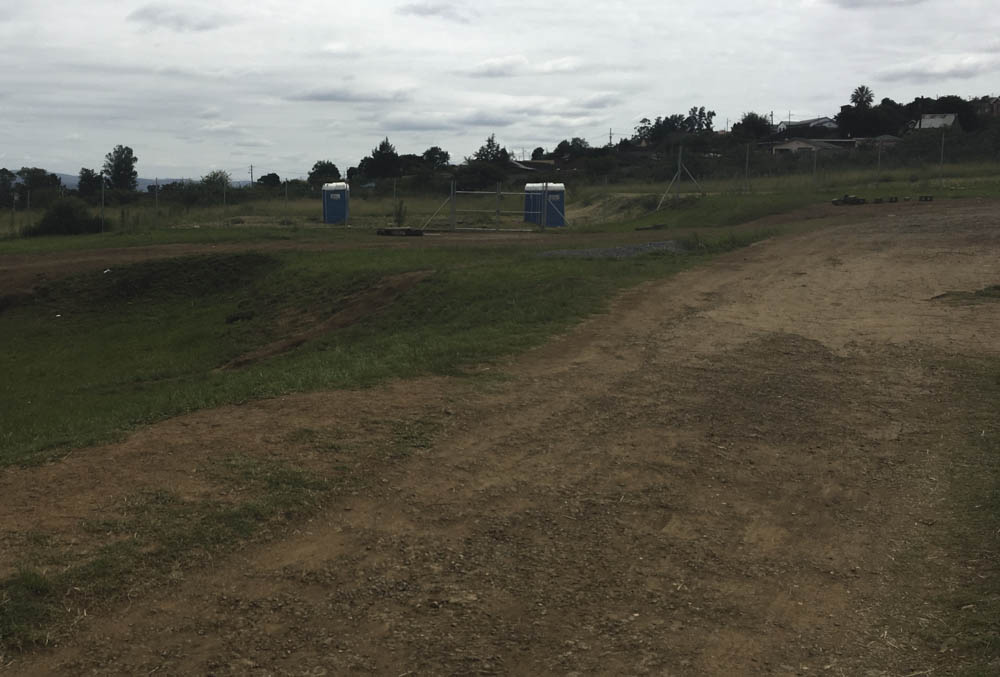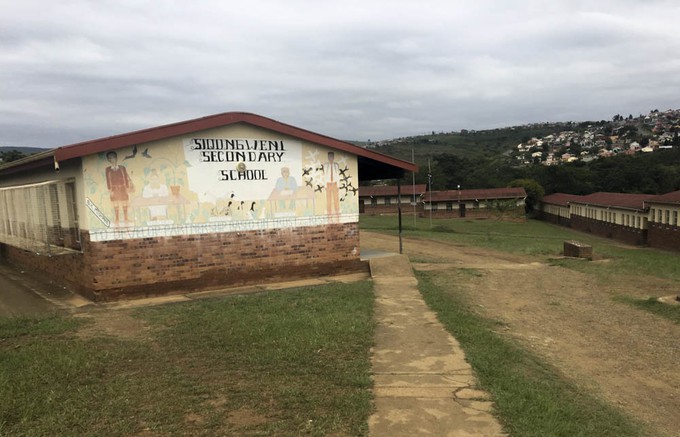90% matric pass rate for Pietermaritzburg school where students sit on buckets to study
“The school teachers are the best resources we had,” says student who got seven As
Most students at Siqongweni Secondary School in Imbali in Pietermaritzburg have no desks. Some have chairs; others sit on upturned buckets or on the floor. But more than 90% of matric students passed last year.
With matric pass rates of 95% in 2014, 83% in 2015 and just over 90% in 2016, Siqongweni has been consistent in its results in spite of the challenges the school faces, said principal Johannes Dlamini.
“Last year we managed to buy chairs for our learners but that is not enough. Chairs are easy to steal and that is why we are trying to raise money to buy desks. It is not easy. One desk costs R850 and it allows two learners per seat. With the 986 enrolments that we have, buying those desks would be close to R 400,000. Where will the money come from?”
Learners sit on buckets or lean against the wall in one of the classrooms.
After some items were stolen, the School Governing Body managed to raise funds for a fence around the school property. They also raised money for mobile toilets, because the toilets inside the school are broken, don’t flush and have no doors.

The school also has no hall. For functions the principal has to send a request to the ward councillor to hire a community hall. “It is always a mission. Our request gets approved after numerous attempts. We have no clue why a struggling school is treated in that manner. If it is approved, we have to pay a deposit and pay for using the hall. We don’t have the money but if the function is important we pay the money. Otherwise we host our functions in a school yard,” said Dlamini.
“They are all aware of the challenges the school is facing and we work on that together. Since we don’t have resources, we try to help each other by sharing what we have. We help where we can and that is how we have managed so far.”
“We also advise our learners to grasp knowledge from the outside. They attend extra classes outside the school and they engage in external projects. We sharpen our learners as early as grade 8, so everyone in grade 12 deserves to be there and that is why we are raising the flag regardless of the trials and tribulations,” said Dlamini, whose school has received several awards.
Last year 79% of Grade 8 learners got through to Grade 9, 85% of Grade 9 learners got through to Grade 10, 74% of Grade 10 got through to Grade 11 and 70% of Grade 11 got through to Grade 12.
The problems at the school did not stop Ayanda Sithole, 18, from getting seven As in matric. He said his school lacked resources, “but the school teachers are the best resources we had”.
“It doesn’t matter which schools learners attend, what matters is what you want, how you are studying.”
“I always dream of building my grandmother a big house. That is why I had to study. And I bore in mind that ‘the poorest man is not the one without money but the one without a dream’ so since I had a dream I wasn’t poor.”
Education spokesperson Muzi Mahlambi said the KwaZulu-Natal Department of Education was aware of struggling schools like Siqongweni but did not have the budget to fix them. “We are happy that through those hard conditions they strive to be the best. If the department had billions of rands, such schools wouldn’t exist,” said Mahlambi.
Actually, in the 2015/16 financial year the provincial education department had a R45 billion budget.
Next: R15k raised for “48 to 84” campaign for Masiphumelele school
Previous: Judge urged to visit Wolwerivier
© 2017 GroundUp. 
This article is licensed under a Creative Commons Attribution-NoDerivatives 4.0 International License.
You may republish this article, so long as you credit the authors and GroundUp, and do not change the text. Please include a link back to the original article.



